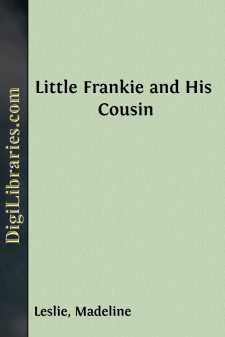Categories
- Antiques & Collectibles 13
- Architecture 36
- Art 48
- Bibles 22
- Biography & Autobiography 813
- Body, Mind & Spirit 142
- Business & Economics 28
- Children's Books 13
- Children's Fiction 10
- Computers 4
- Cooking 94
- Crafts & Hobbies 4
- Drama 346
- Education 46
- Family & Relationships 57
- Fiction 11828
- Games 19
- Gardening 17
- Health & Fitness 34
- History 1377
- House & Home 1
- Humor 147
- Juvenile Fiction 1873
- Juvenile Nonfiction 202
- Language Arts & Disciplines 88
- Law 16
- Literary Collections 686
- Literary Criticism 179
- Mathematics 13
- Medical 41
- Music 40
- Nature 179
- Non-Classifiable 1768
- Performing Arts 7
- Periodicals 1453
- Philosophy 64
- Photography 2
- Poetry 896
- Political Science 203
- Psychology 42
- Reference 154
- Religion 513
- Science 126
- Self-Help 84
- Social Science 81
- Sports & Recreation 34
- Study Aids 3
- Technology & Engineering 59
- Transportation 23
- Travel 463
- True Crime 29
Sort by:
by:
Various
THEPREFACE. In the Preface to the First Number of this Catalogue, I mentioned that the Design of it was Principally intended to inform Gentlemen, Ladies, &c. who live remote from London, (at a small Expence), what Books, Pamphlets, Prints, &c. were published in the Preceeding Year; with their exact Prices, and whom printed for. And to make this Annual Catalogue more Compleat and Useful, I have...
more...
by:
Madeline Leslie
CHAPTER I.FRANKIE'S COUSIN NELLY.In another little book I have given you an account of Frankie when he was a baby, and have spoken of some things which he said and did when he began to talk and to walk. In this book I shall tell you more about him, and also about his cousin Nelly, who came to pass some months in his father's house, while her parents visited Europe. Nelly was six years old,...
more...
Chapter One. True Blue—A British Seaman of the Old School. The old Terrible, 74, was ploughing her way across the waters of the Atlantic, now rolling and leaping, dark and angry, with white-crested seas which dashed against her bows and flew in masses of foam over her decks. She was under her three topsails, closely reefed; but even thus her tall masts bent, and twisted, and writhed, as if striving...
more...
The first battle on the American continent in which horses were used was that of Cintla in Tabasco, March, 1519, the European troops being under the leadership of Hernando Cortes. This fact attaches something more than an ordinary historic interest to the engagement, at least enough to make it desirable to ascertain its precise locality and its proper name. Both of these are in doubt, as well as the...
more...
Captain Philo's sail-loft was a pleasant place to sit in, and it was much frequented. At one end was a wide, sliding door, that opened on the water, and through it you saw the little harbor and the low, glistening sand-bar at its entrance, and whitecaps in the sea beyond, and shining sails. At the other end another wide door led, by a gently descending cleated platform, to the ground. It was a...
more...
by:
James Stephens
THREE HEAVY HUSBANDS I He had a high nose. He looked at one over the collar, so to speak. His regard was very assured, and his speech was that short bundle of monosyllables which the subaltern throws at the orderly. He had never been questioned, and, the precedent being absent, he had never questioned himself. Why should he? We live by question and answer, but we do not know the reply to anything until...
more...
OLIVER BELL BUNCE. (1828-1890) The name of Oliver Bell Bunce is not prominently connected with the American Theatre. Authorities have taken little or no trouble to unearth his association with the plays and players of his time—the mid-period of the nineteenth century. Yet they all agree that, as illustration of "parlour comedy," his "Love in '76" is a satisfactory example of...
more...
by:
Sanford Kossin
He hadn't gotten any work done that morning. He'd spent most of the time pacing the floor of his small back office, and the rest of it at the window—hands clasped behind his somewhat bowed back—staring up into the cloudless sky. At ten-forty, the intercom buzzed. He snapped the switch. "Yes?" "I've got those figures, Mr. Lake. We have nine—" "Maybe you'd...
more...
CHAPTER ONE. OF CERTAIN PEOPLE. To begin a story of this kind at the beginning is hard; for when the beginning may have been, no man knows. Perhaps it was a hundred years ago—perhaps a thousand—perhaps ten thousand; and it may well be, yet longer ago, even, than that. Yet it can be told that John Schuyler came from a long line of clean-bodied, clean-souled, clear-eyed, clear-headed ancestors; and...
more...
by:
Edward Bellamy
INTRODUCTION BY HEYWOOD BROUN A good many of my radical friends express a certain kindly condescension when they speak of Edward Bellamy's "Looking Backward." "Of course you know," they say, "that it really isn't first-rate economics." And yet in further conversation I have known a very large number of these same somewhat scornful Socialists to admit, "You know,...
more...











